It’s not always easy to determine whether ants are good or bad for beans. Usually, they aren’t a problem by themselves, but just in association with sap-sucking insects.
The presence of aphids, mealybugs, whiteflies, and scale insects is harmful as they can attack your bean plants and attract ants with their sweet excretions.
Ants love to feed on the honeydew they produce, making them their favorite food source.
The result, they farm these insects and help them to thrive. This symbiotic relationship can be harmful to your beans as aphids in particular, can considerably weaken your plants and infect them with diseases.
In order to save your plants, you will have to take care of aphid reduction first. That’s because even if you wipe out an ant colony, as long as there are aphid colonies, more ants will come.
There are different methods of taking care of aphids and ants, and we will look at the most efficient and natural ones, which won’t harm the environment or other beneficial insects.
- Related articles: Ants on Plant
Before killing off all the ants, consider that they also have positive sides, and that in the absence of aphids, they are actually beneficial for the garden.
Are Ants on Bean Plants a Problem?
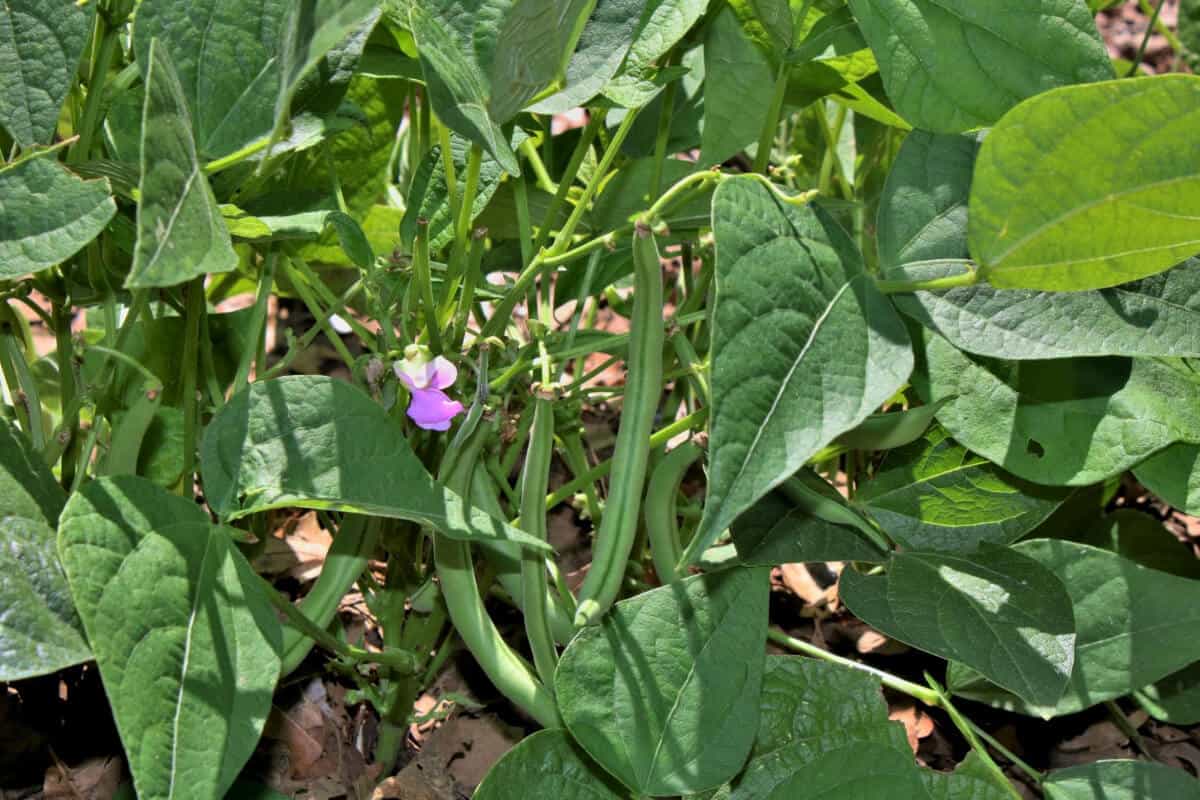
Ants can be a problem for bean plants because they have developed a symbiotic mutualistic relationship with insects that feed from their sap.
The most common ones that attack beans are lots of aphid populations. These insects ingest great quantities of sap, which they are unable to digest completely.
Therefore, their excretions are very sweet, and if they accumulate on the plant leaves, they will also attract black fungus.
This black, sooty mold can grow so much that it disrupts the plant’s ability to photosynthesize.
However, the greatest damage of aphid infestations to bean plants is usually because of the diseases they carry that can spread from plant to plant.
A particularly dangerous species of aphid is the Blackfly, which is especially drawn to broad beans. These tiny aphids congregate on new leaves, stems, and flower buds, and can seriously stunt the growth of young shoots and weaken the plant.
But because of their symbiotic relationship, ants protect aphids to ensure that they have a continuous food source which is aphid honeydew.
Some ant species even go to the extent of fighting off predators and other insects just to keep aphids alive. They then collect and store aphid eggs in their nests.
This way, when spring comes, they can take the newly-born aphids back to the plants.
Will Ants Eat Bean Plants?
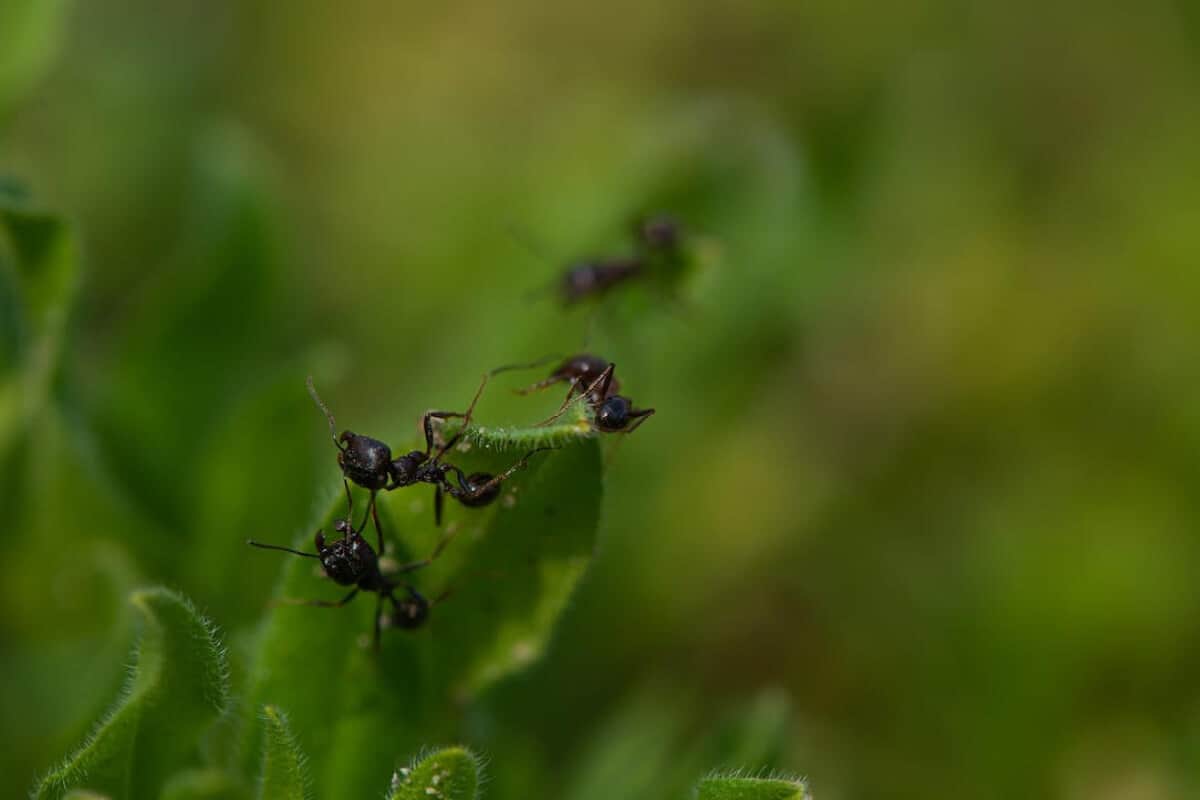
While ants can be a problem because of their love of aphids, they don’t feed on bean plants themselves.
Some people might assume ants have damaged their plants if they see them in great numbers, but they are probably just there for a different reason.
Ants can actually help you by signaling with their presence that there’s something wrong with your plants. Most likely, it will be the presence of aphid colonies, but it could also be other sap-sucking insects, or possibly slugs or other pests.
If you notice holes in your bean leaves, neither ants nor aphid infestations are responsible.
The only part of the plant that ants feed on is the nectar, but this doesn’t cause any issues for the beans.
On the contrary, some species of beans have developed extrafloral nectaries, which are special organs that produce bloom nectar specifically to attract ants and other beneficial insects.
The purpose of these extrafloral nectaries is to either help with pollination or protect them from pests, or possibly both.
The only species of ant that can sometimes eat live plants is the Red Fire ant. Fire Ants get their name from their poisonous sting which can burn for quite a while.
They are known for feeding on the most tender parts of plants, but fortunately, they don’t often attack beans.
How Can Ants Help Bean Plants?
Ants can be very helpful for bean plants, despite the fact that they farm aphids and other harmful insects.
Ants are actually listed among the beneficial insects as they carry out many functions that are essential for the well-being of the garden.
The following are the main reasons why you might consider leaving them among your bean plants:
1. Ants Control Garden Pests
Ants have a very varied diet, which includes insect eggs and larvae. Many of the ones they feed on are harmful insects to your garden.
A healthy ant population are beneficial insect predators and can help you save on other control of pests methods.
You will also decrease your use of dangerous substances that could upset the balance of your backyard garden.
2. Ants Help Pollination
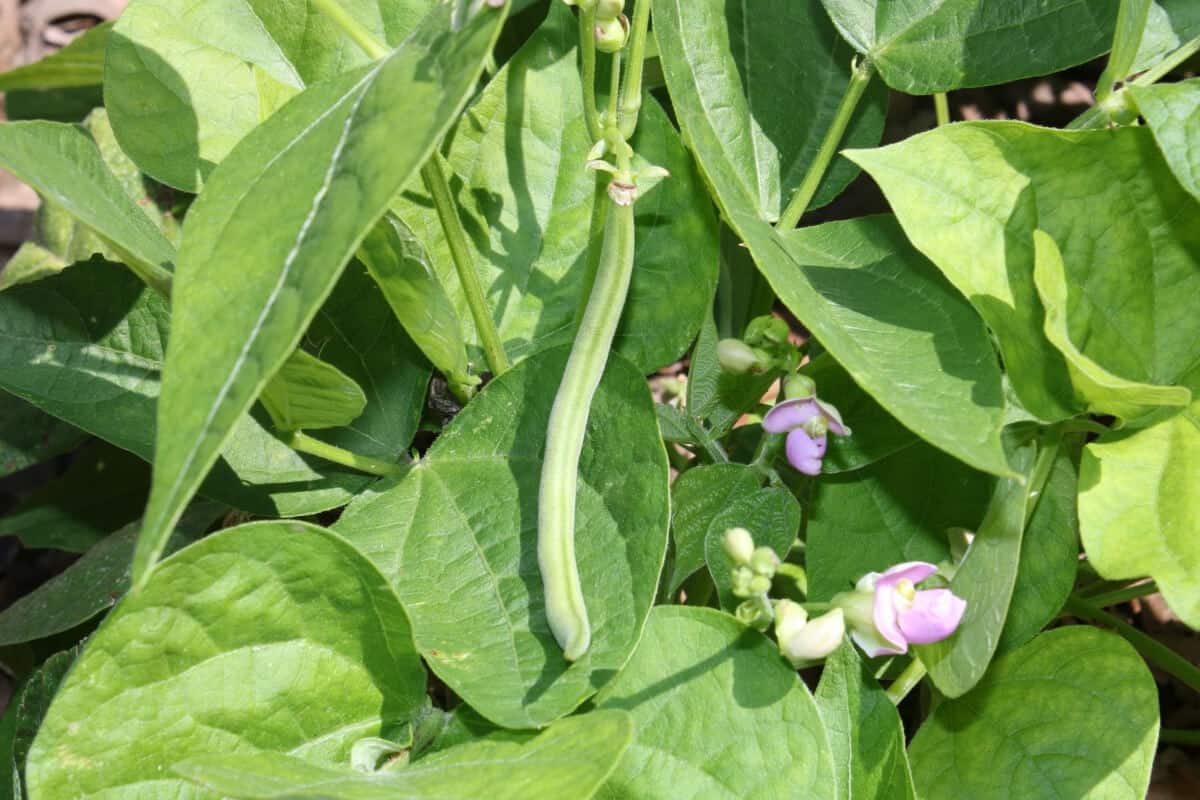
Ants love to feed from nectar, so they can help pollinate plants as they continuously move from one to another. Certain species of beans even secrete a special nectar just to attract ants.
3. Ants Aerate the Soil
Ants have a beneficial effect on the soil. In building their nests, they create a system of galleries that helps air and water to reach roots more efficiently.
4. Ants Decompose Waste
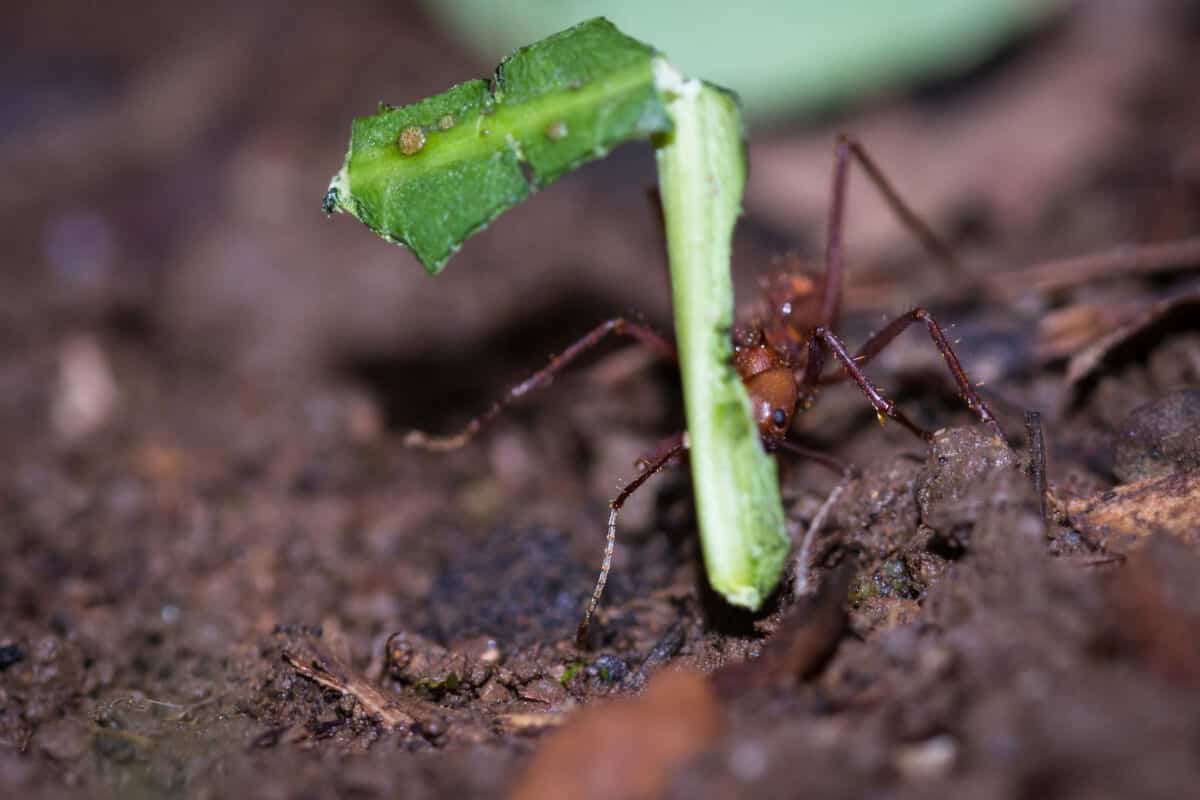
Ants are one of the species that help to break down organic material. This is another reason why they might be seen crawling on damaged plants and be mistaken for the culprit.
They are actually just attracted to rotten or dead plant parts, which they carry back to their nests.
Ants don’t even have the necessary mouth parts that would allow them to chew on live plants, and they can’t digest fiber.
Their incessant activity, on the other hand, is very beneficial for the soil, as in decomposing animal and plant waste, they fertilize it too.
Best Ways to Keep Ants Away from Bean Plants
There are many natural methods of getting rid of ants, but this is not always advisable. It’s always best to check if ants are present because they have been attracted by other pests, such as aphids.
In this case, you should deal with aphids first, then ants won’t be an issue anymore.
Many times, ants have more benefits than drawbacks, and it could be harmful to your bean plants to get rid of them completely.
It’s also true that if you have a colony of Red Ants infesting your garden, you will want to dispose of them.
That’s why the following are some of the best ways to keep ants and aphids away from bean plants:
1. Natural Sprays
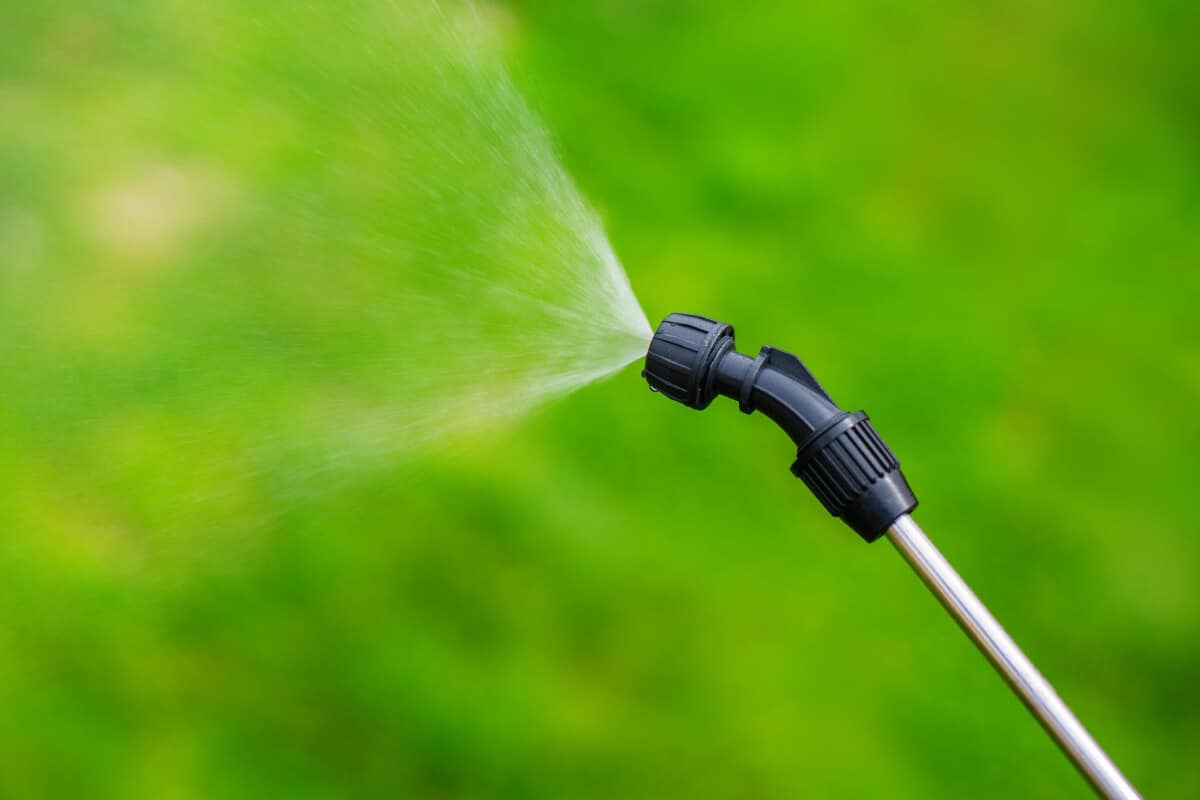
There are various substances that can be used to repel or kill ants, like oils or soapy water.
Insecticidal soap is very effective, but only in the short term. It’s a highly-refined soap that has very low toxicity levels and kills ants on contact.
You can also spray ants with neem oil, one of the most used horticultural oils. This has mixed results, as some people swear by it while others don’t see any difference. Its effectiveness probably depends on the species of ant.
If that does not work for you, you can try tea tree oil and peppermint oil as well.
Some people also use acidic substances such as lemon and vinegar to disrupt ant trails and keep them away. Acidic smell overwhelms the ants’ senses and causes them to leave.
2. Plants and Spices
Many species have strong odors that ants dislike, and they can be used to repel them.
Planting henbit, geranium, garlic, aster, calendula, chrysanthemum, and mint around your bean plants will help to protect them from ants that might farm aphids.
Dried or fresh herbs can also be used, either by sprinkling them next to the beans or making strong infusions.
Ground spices such as cinnamon, pepper, curry, and leftover coffee grounds are also effective.
Alternatively, you can use different companion plant strategies that will attract aphids away from your bean plants.
For example, nasturtium next to broad beans will be covered in aphids, which will be a lot less interested in attacking the beans.
Learn more – Are There Plants That Deter Ants?
3. Water
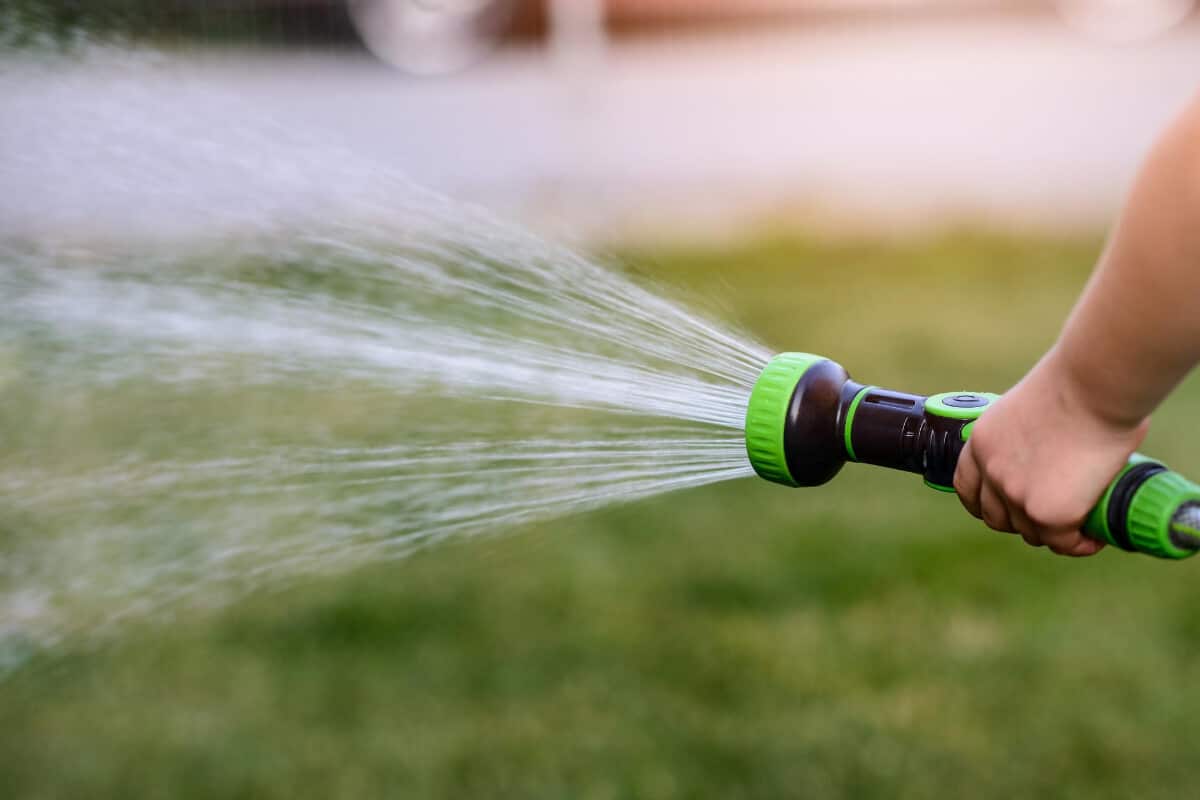
Ants need dry soil to build their nests, so simply keeping your garden well-watered could ensure that they won’t colonize it.
You can also blast your plants with water and it will remove ants, aphids, and other harmful insects. Do this for a couple of days to completely remove them.
If you’re really set on killing off the ants, pouring warm water, or boiling hot water, on their nest entrance will do the trick.
4. Aphid Predators
Ants and aphids both have natural predators. By encouraging their presence in your garden, you can protect your bean plants naturally.
Ground beetles, humpback flies, parasitic wasps, praying mantids, and the yellow-shafted flicker all feed on ants, and can be attracted by planting flowering plants like cilantro, celery, and carrots.
It will be even more effective to take care of aphids directly though. Insects that feast on aphids include green and brown lacewings, ladybugs, and parasitic wasps.
They will thrive in your garden if you plant Sunflowers, Marigolds, Cosmos, Cilantro, Dill, and Chamomile and you provide a source of water.
5. Make Ant Baits
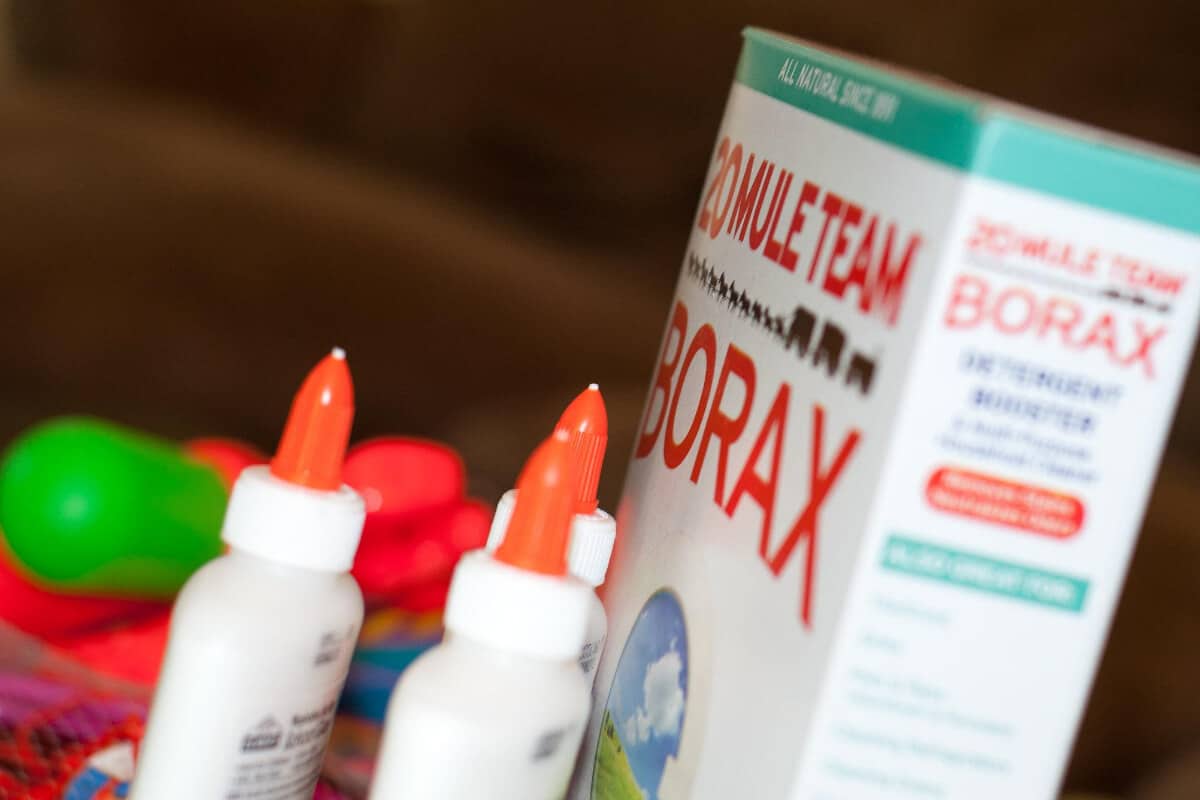
Borax is extremely poisonous for ants and doesn’t have any adverse effects on the environment, but it’s slightly toxic for small children and animals, so it’s best to avoid using it if you often have pets in your garden.
Also, be sure to place just the right amounts of borax that will get eaten by ants quickly in your bait recipes.
Ants will be attracted to borax if it’s mixed with cups of sugar or honey, which masks the dangerous smell.
They will carry the borax and sugar solution to their ant nests and feed it to the larvae, killing the whole colony over time.
6. Diatomaceous Earth
The fine white powder from food grade Diatomaceous Earth is completely safe for mammals, but it can kill any insect with an exoskeleton.
It’s very efficient in taking care of ants, but the risk is that it could also affect other beneficial insects that you want to be thriving in your garden.
Final Thoughts on Ants on Bean Plants
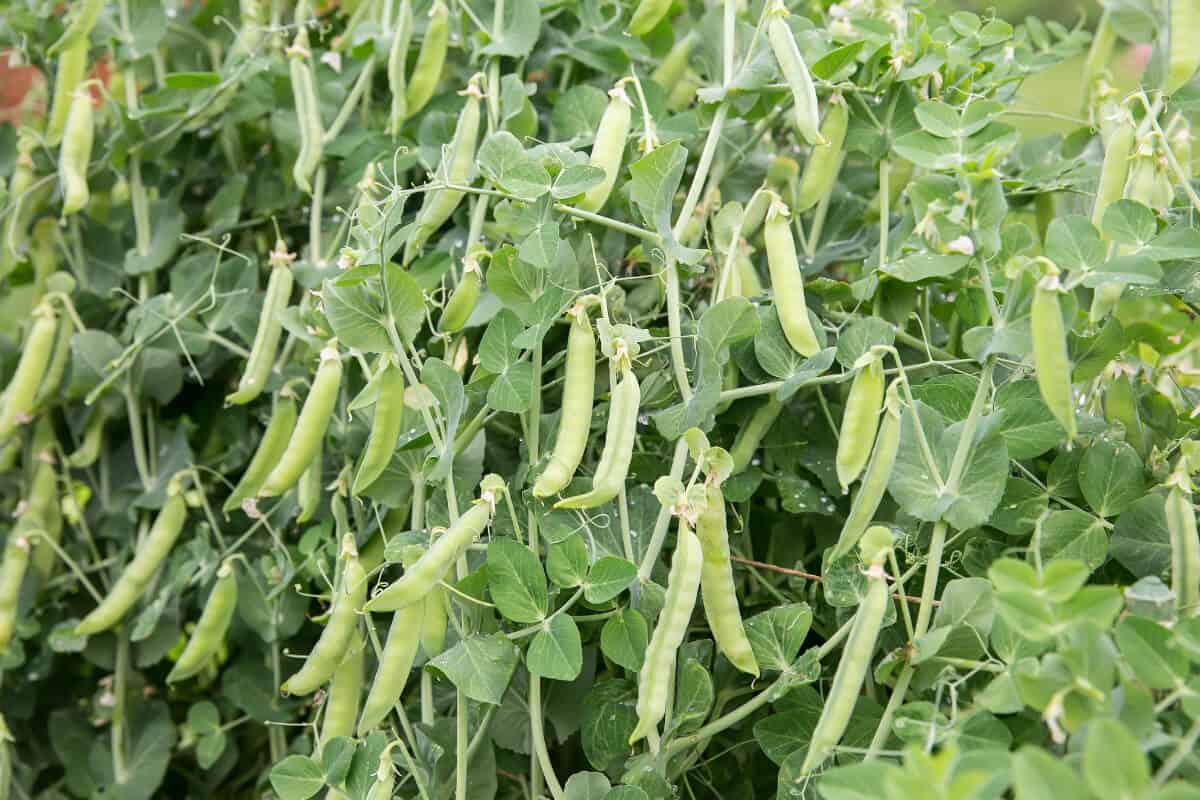
Ants are fascinating creatures that can provide both benefits and drawbacks to bean plants.
While they help to aerate the soil and protect against bad pests like aphids, they can also disrupt the growth of bean plants and cause damage to the crops.
Understanding the behavior and influence of ants on bean plants is crucial for farmers and gardeners who want to maintain healthy and productive gardens.
By applying the proper techniques, such as deterrents or beneficial insect attracting methods, the relationship between ants and bean plants can thrive, allowing for a balanced garden ecosystem!
To know more about ants on bean plants, take a look at these articles:
- How to Get Rid of Ants on Corn Stalks
- Will Ants Harm My Potato Plants
- Ants on Artichokes
- Ants on Green Pepper Plants
- How to Keep Ants Off Strawberry Plants
- Why Are There Ants on My Tomato Plants
Sources:
- https://ipm.ucanr.edu/legacy_assets/faq/antfaq.pdf
- https://education.mdc.mo.gov/discover-nature/field-guide/green-lacewings

